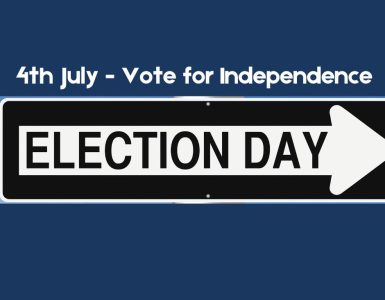No-one can stand for election into a citizen’s assembly. No-one is voted into one. Assemblies are randomly chosen, but representative, groups of citizens. That process is called Sortition.
When the Commons was in deadlock over Brexit negotiations, Labour MP Stella Creasey suggested setting up a citizens’ assembly to help break out of the impasse. This is part of why she proposed it:
Like a circuit-breaker, citizens’ assemblies can disrupt the bad habits that have come to characterise Brexit: kicking issues into the long grass, placing party interests over the national interest and assuming the public are unable to cope with hard choices.
They don’t replace parliaments or offer politicians an escape from difficult decisions. Instead they reject binary choices – remain or leave, no deal or Norway – and allow randomly selected groups of citizens to explore options in an open forum and make recommendations about priorities to elected MPs, who retain the final say.
In a deadlocked parliament, this could be the one approach that could retain the trust of us all that the answers were fair, thoughtful and not predetermined. If, for instance, a citizens’ assembly recommended a referendum, it could also consider what the question should be, providing confidence that there was no attempt by politicians to game the system.
So how do citizens’ assemblies work?
Brett Heddig set up the Sortition Foundation to explore how we can do democracy differently. I took myself along to an event where he presented his ideas on Citizens’ Assemblies..
He reminded us of how the Greeks did democracy. Greek democracy was about drawing lots from among the citizenry. They even had a very neat bit of Bronze Age technology, the kleroterion, to produce the random selection! And they used it to create representative group of citizens for introducing legislation, or reviewing proposed legislation, of juries. Those citizens selected then deliberated on whatever decisions were needed.
Of course it was only a random pick of those considered to be eligible. Women weren’t eligible. Or slaves. Or foreigners. Of course, things have improved since then. A bit.
Here’s Brett Heddig’s explanation of how an assembly might work in today’s world:
Assemblies are very different from the parliamentary debating chambers that we’re used to
We’re used to thinking of parliaments as debating houses arranged along party political lines. A citizens’ assembly is a different thing altogether.
It’s entirely up to the assembly how it goes about its discussions. They can choose to work in small groups round small tables, with a facilitator for each group. The groups can rearrange themselves and the discussion can carry on in different groups. (That’s similar to Conversation Cafes that I’ve taken part in.) They can call in experts to help their discussions.
Some people are more confident, more vocal than others. So by working in small groups, people can help one another to find their voice. And that’s in the interests of everyone, unlike in a party political setup. It also helps improve the working ethic of the assembly.
Who uses Citizens’ Assemblies?
British Columbia, Ontario, the Netherlands, Poland, Belgium have all used citizens’ assemblies. (See here.) The Republic of Ireland use them to make proposals to the Irish Parliament on questions that are particularly tricky for Irish society. And being tricky, they are hard to debate in a parliament where politicians have one eye on being re-elected in the coming years.
One Irish Assembly looked at the question of same-sex marriage and recommended that parliament proceed to legislate in its favour. Which it has now done.
In 2016, a subsequent Irish Citizens’ Assembly was asked to look at five topics:
- the question of abortion which involves amending the Article 8 of the Irish Constitution,
- the ageing population,
- fixed term parliaments,
- referendums
- climate change.
There is lots of information on their Citizens’ Assembly Eire website. Just click on the image….

Might citizens’ Assemblies have helped with Brexit? Would they help with Scottish Independence?
Oh I’m sure that had we set up a citizens’ assembly to look into leaving or remaining in the EU, we would not have found ourself in the almighty mess we did. So did this lady responding to a BBC Question Time panel in 2019:
Hear, hear. But that’s not the kind of party political democracy that we have in place. Or to be fairer, the kind of political parties who. we vote for are not likely to set them up.
Might we use them in an independent Scotland? Well they seem to fit well with the kind of civic society that we have here. At the meeting I went to, Brett Heddig even suggested that we create a second chamber at Holyrood set up on those sortition principles.





Add comment